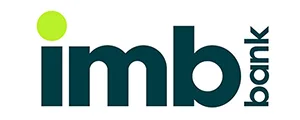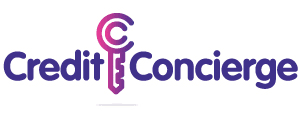
| 4.89 | % p.a. |
| 5.44 | % p.a. |
Borrow from $10,001 to $100,000 with loan terms up to 7 years. Benefit from no early repayment or exit fees as well as no monthly fees.
We’re reader-supported and may be paid when you visit links to partner sites. We don’t compare all products in the market, but we’re working on it!

| 4.89 | % p.a. |
| 5.44 | % p.a. |

| 4.88 | % p.a. |
| 5.23 | % p.a. |

| 2.99 | % p.a. |
| 4.07 | % p.a. |
Car Loan Finder® can help you find the right car loan for your needs.
As many as one in five Australians use a finance product for their new car purchase. One of the most popular ways is with a car loan, but there are other options too, like dealership finance and leasing.
No matter what you go with, comparing your options could help you save hundreds, if not thousands of dollars over the life of your agreement. Below, you can compare car loans by interest rates, fees and repayments from a range of lenders.
Car loans can work differently depending on what type of loan you take out and what kind of car you're looking to purchase.
Generally, the following steps will apply:
The type and age of the car you want will influence which loans you may be eligible for. If you're after a new, used or older car, find out how this can affect your options below.
Most banks and credit unions generally offer more-competitive interest rates for customers wanting to buy a new car. Interest rates are usually lower for new car loans simply because they're considered to be a lower risk. A new car is more likely to retain most of its value for the majority of the loan term. As the car you purchase can be used as collateral security for the loan, it's in the lender's best interests if it has a good chance of being able to sell the asset for a good price if you can't repay your loan.
Not all new car loans are restricted to brand-new cars, so it is worth taking time to compare several car loans terms and conditions. In some cases, the lender may consider any car that is under two years old to still be a new car, but this may be dependent on the number of kilometres displayed on the odometer.
You can still get a secured loan if you want to buy a used car. The lender will still use your vehicle as collateral for the loan, but there may be restrictions on the age of the car you can use.
With most lenders, a used car needs to be between two and five years old at the time of application. Some lenders place further restrictions on the age of the vehicle, by stating that the car cannot be more than 10 years old at the end of the loan term.
As it's likely the value of the car will reduce from its original price over the loan term, the lender may consider this a higher risk than buying a new car. As a result, the interest rates tend to be a little higher on these types of used car loans. That means if you are looking to purchase a used car it may be even more important to compare car loan options.
There are times when the car you want to buy may be older than five years old. When this happens, the bank is unlikely to want your vehicle used as security for the loan, as its value may not be retained. In this event, the lender may suggest you apply for an unsecured personal loan instead. The car you buy won't be used as security for the loan, which means the lender can't repossess the vehicle if you stop making your repayments. This type of loan is considered riskier for the lender and as a result, the interest rates will generally be higher.
There is a wide variety of car financing options out there and there are features that differentiate those options.
A variable rate car loan will mean the interest rate you pay on your loan amount will change according to the market. If the rates go up it's likely your repayments will also go up to cover the additional interest charges. If rates go down your repayments should also be reduced as the interest charges won't be so high. A variable car loan can be quite flexible, but it can also be harder to budget for repayments if they begin to vary from month to month.
A fixed rate car loan lets you lock in the interest rate for the entire duration of the loan. As the interest rate doesn't change over the loan term, your repayments will also stay exactly the same. This makes it much easier to budget for repayments each month. However, the fixed rates available from most lenders tend to be higher than the variable rates available.
With a secured car loan, the vehicle you buy is used as collateral security for the loan. The lender has the right to repossess your vehicle if you default on your loan. It will then sell the vehicle to recoup the costs of the loan.
As this type of loan is less of a risk to the lender, the rates for secured loans will usually be lower than those offered on an unsecured loan. This type of loan is similar to a secured personal loan, however their intended use is for the purchase of a vehicle.
With unsecured car loans, the lender doesn't use any of your assets as security for the loan. This means it has no asset to repossess if you stop making your loan repayments. These loans come with higher interest rates but you also have more flexibility with the way you use your loan.
If you're self-employed and purchasing a car primarily for business use, you can consider a chattel mortgage. The lender you apply with takes out a "mortgage" over your car while you make monthly payments towards the vehicle. Once it is paid in full, the mortgage is removed and you own the car outright. Don't forget the Australian Government $30,000 tax break, too.
Chattel mortgages operate like a regular secured personal loan, in that the car you buy is still used as security over the chattel mortgage and you are still required to make regular monthly instalment payments off the principal balance. However, you can nominate whether you want a final payment that is larger than the usual payments. This residual payment is also called a balloon payment. You can use a balloon payment to help reduce the size of your monthly repayments throughout the loan term, which can be beneficial for business cash flow in some instances. Of course, you will then need to be able to cover the balloon payment at the end of the loan.
It can be a good idea to try and ensure that the trade-in value of the vehicle will cover the balloon payment in the event you wish to sell the vehicle.
Self-employed borrowers also have the option of financing a car using a car hire purchase. Every repayment made towards a car hire purchase agreement reduces the balance owing on the purchase price of the car. If you're a self-employed borrower, it's important you discuss the different car financing options with an accountant before making a decision. There are multiple cash flow and tax implications that may apply with different types of finance, so it's best to discuss which option will be best suited to your business needs.
A novated lease can be an option for employees who are able to make an arrangement with their employers. Essentially, the lender purchases the car and your employer makes the lease payments on the vehicle out of your before-tax salary. This can potentially help reduce your taxable income, which results in you paying less tax overall. At the end of the novated lease term, you have the option of purchasing the vehicle outright for an agreed sum or returning it and upgrading to a different car where you'll enter into a new lease agreement.
For the self-employed, a car lease can also be used to buy a car for business purposes. The lender purchases the vehicle and you make regular lease payments until the end of the agreement. A commercial car lease may give you the option to purchase the car at the end of the lease term at a reduced price or you can choose to give the car back and enter into a new lease agreement for a different vehicle.
When most people go hunting for the cheapest loan, they immediately look for a low interest rate car loan and believe they're getting the best car loan. Unfortunately, it is possible for the car loan with the cheapest rate to end up costing you more over the term of the loan if you're not careful.
Consider a car that costs $25,000. One lender is offering a rate of 8% p.a. over 5 years and another is offering a rate of 9% p.a. The only difference is the fees. Take a look at how much it could cost you by just opting for the cheapest rate:
| Lender A | Lender B | |
|---|---|---|
| Loan amount | $25,000 | $25,000 |
| Interest rate | 8% p.a. | 9% p.a. |
| Loan term | 5 years | 5 years |
| Monthly account fee | $20 | $0 |
| Establishment fee | $0 | $200 |
| Total monthly cost | $532.91 | $518.96 |
| Total repayment amount | $32,275 | $31,588 |
In the above example, the interest rate that was higher turned out to be the cheaper option, despite the initial up-front cost.
Make sure you consider and compare all costs before you apply for a car loan and use a car loan repayment calculator to determine your repayments.
If you take the time to compare car loans on finder.com.au, you'll get a strong idea of what interest rates are available from a range of lenders. This gives you plenty of ammunition when it comes to negotiating with your own lender.
If you're keen to stay with your own bank or credit union for your car finance needs, take your interest rate information with you when you make your enquiries. This will encourage the lending officer to see if there is any room to take a few extra points off the interest rate they offer you.
When you apply for a loan through the finance officer at a car dealership, you have lots of room to negotiate on rates. This is because the dealership often receives its loans at discounted rates, leaving it extra room to bump up the rate you pay. That margin between what the dealer pays to the lender and what you pay to the dealer forms their "trail" commission. In other words, every time you make a payment, some of it goes towards paying interest to the lender and some goes to paying commission to the car dealership. Haggle and negotiate on the rates you're offered through the car dealership. It will usually have around 2% that it can drop from the initial rate that it quoted you.
Some banks will offer a discount on their advertised interest rates if you also have other banking products with them. If you already have a mortgage, a credit card and a transaction account with one bank, ask if it will give you a discount on your car loan if you add that to your package.
It's always possible to reduce the payments you make on your loan each month. The key is to ensure that you're not paying more than you really should over the entire term of the loan. Here are some ways you can reduce your minimum monthly payments.
| Description | Option 1 | Option 2 |
| Loan amount | $25,000 | $25,000 |
| Interest rate | 8.25% | 8.25% |
| Loan term | 5 years | 7 years |
| Monthly payment | $509.91 | $392.78 |
| Total paid over loan term | $30,594.38 | $32,993.22 |
In this example, Option 1 has a higher monthly repayment, but you only end up paying $5,594.38 in interest over the term of that loan. By comparison, Option 2 allows you to pay $117.13 less per month on your monthly repayments. This will definitely make budgeting easier throughout the loan term, but you end up paying $7,993.22 in interest over the loan term. This is $2,398.84 more in interest charges you end up paying overall.
Below is a checklist of some of the information and documentation you may need to supply for your car loan application.
Getting your car loan approval might seem quick, but there are several stages your application needs to progress through before your money is released to the car's seller.
If you still haven't found the information you're looking for, we're confident you'll find it below.
Remember that a car loan can be a large financial commitment, so exercise diligence and compare a wide range of options before applying.
Housing markets continue to rise, despite ongoing lockdowns, but is price growth set to slow down during the traditionally popular spring selling season?
Apple's middle child Pro phone might just be its best handset of 2021. Here's why.
Find out what exactly TPD insurance covers and how to determine an appropriate level of cover to give adequate protection in the event of disablement.
If you need to make a claim on your TPD insurance, follow these steps to ensure you have the best chance of making a successful claim.
Find out how to stake your THETA tokens and how Theta’s multi-BFT proof-of-stake consensus mechanism works.
Discover the features and benefits of Australian Unity’s Wealth Builder Investor Package variable rate home loan.
Looking to consolidate your debt? Salt and Lime offers fee-free loans, same-day funding, and the ability to earn discounts on your interest over the life of the loan. Apply today.
You've got to have plenty of space and a passion for fitness to invest in the NordicTrack Commercial 1750 Treadmill. If you do, however, you get a robust machine that can make some serious improvements to your fitness.
Class actions are currently underway against CBA, Westpac, Allianz and MTA – here's how to find out if you're eligible to claim any money back.
Police cars – love or hate them, these are the best-looking ones from across the globe